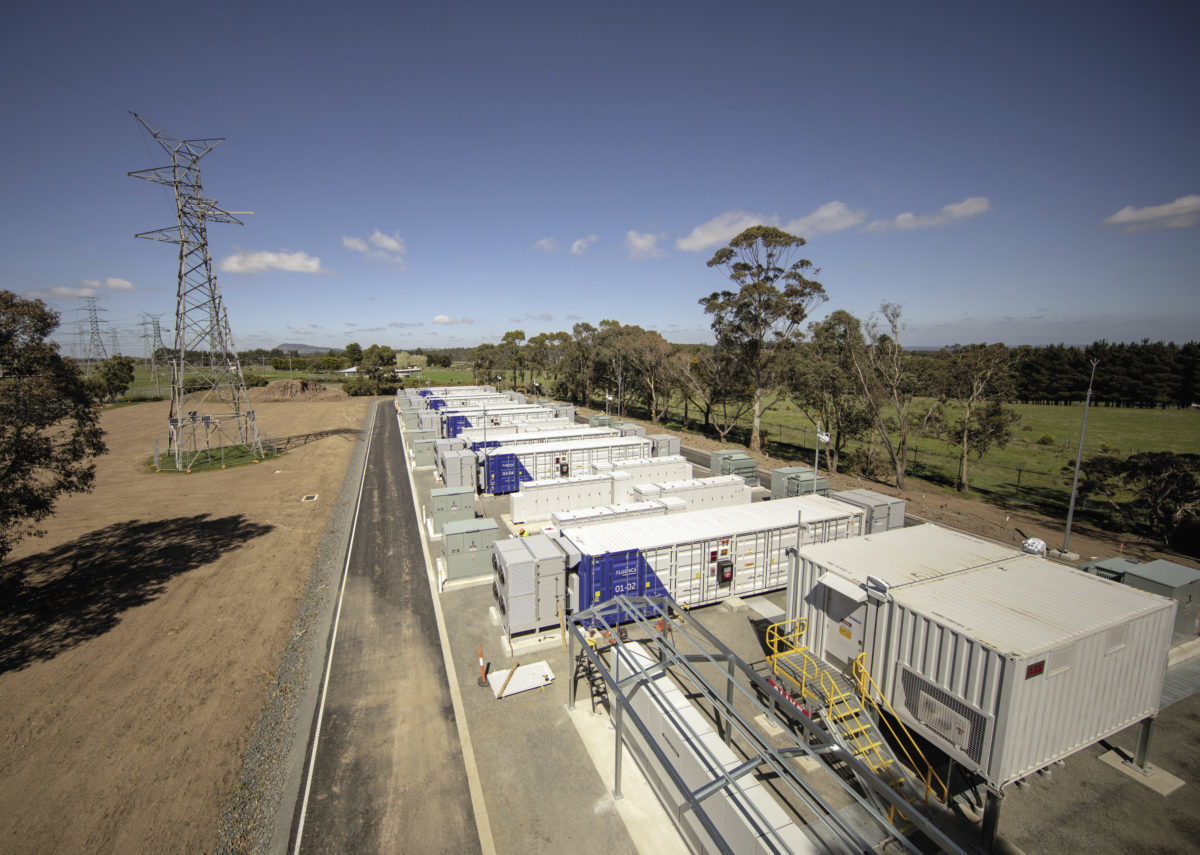India has installed a cumulative battery energy storage system (BESS) capacity of 219.1 MWh/111.7 MW as of March 2024. Of the installed capacity, 120 MWh/40 MW was added in the first quarter of 2024, according to Mercom India’s new report India’s Energy Storage Landscape.
Solar PV systems combined with battery energy storage systems accounted for 90.6% of the total installed BESS capacity, as per the report.
The Mercom report outlines the status of energy storage installations in India, key states for energy storage capacity development, tariff trends, the pipeline and installed capacity of standalone BESS projects, renewable energy plus BESS, and pumped storage.
The report states that rapid addition of intermittent renewable energy sources, solar and wind, has significantly impacted grid stability. Solar and wind accounted for 28.9% of the country’s electricity capacity as of March 2024. Policy measures such as deviation settlement mechanism, grid connectivity regulations, and ancillary services regulations are being issued to ensure efficient renewable integration and grid stability. These measures are driving the demand for utility-scale energy storage.
The viability gap funding (VGF) program aims to install 4 GWh of BESS, supported by a budget of INR 37.6 billion ($452 million). The VGF, energy storage obligations, and bidding guidelines for energy storage projects, with or without renewable energy, are boosting the country’s pipeline of energy storage projects.
“India is an emerging market for energy storage, still in the early stages of development. Despite rapid growth in renewable energy, energy storage has lagged, which could potentially lead to curtailment and a lack of grid flexibility and stability. The urgency seen in renewable energy initiatives has been missing in energy storage. To meet energy transition goals and manage the exponential increase in renewable energy, the government must prioritize energy storage to avoid issues faced by other countries with growing intermittent power but insufficient storage capacity,” said Raj Prabhu, CEO at Mercom Capital Group.
The report states that the state of Chhattisgarh leads in BESS installations, accounting for 54.8% of the cumulative installed capacity.
India’s operational pumped hydro storage capacity totaled 3.3 GW as of March 2024, the report quoted from Central Electricity Authority (CEA) data. Nearly 76% of the country’s operating capacity is in Telangana and West Bengal.
As of March 2024, 1.6 GWh/1 GW of standalone BESS, 9.7 GW of renewable energy projects plus energy storage, and 78.1 GW of pumped hydro projects were in various stages of development (60 GW under survey and investigation, and 18.1 GW under development).
The highest capacity of standalone BESS under development was in Rajasthan. Favorable provisions for energy storage capacity development in the state’s renewable energy policy and annual energy storage obligations (applicable through FY30) have been driving the state’s demand for energy storage.
To meet the demand for efficient energy utilization from renewable sources, various government agencies have issued tenders totaling 57 GW and auctioned 11.5 GW of energy storage projects, with or without renewable energy capacities, as of March 2024. Tenders for standalone and renewable projects with energy storage totaled 7.4 GW in Q1 2024.
This content is protected by copyright and may not be reused. If you want to cooperate with us and would like to reuse some of our content, please contact: editors@pv-magazine.com.









4 comments
By submitting this form you agree to pv magazine using your data for the purposes of publishing your comment.
Your personal data will only be disclosed or otherwise transmitted to third parties for the purposes of spam filtering or if this is necessary for technical maintenance of the website. Any other transfer to third parties will not take place unless this is justified on the basis of applicable data protection regulations or if pv magazine is legally obliged to do so.
You may revoke this consent at any time with effect for the future, in which case your personal data will be deleted immediately. Otherwise, your data will be deleted if pv magazine has processed your request or the purpose of data storage is fulfilled.
Further information on data privacy can be found in our Data Protection Policy.